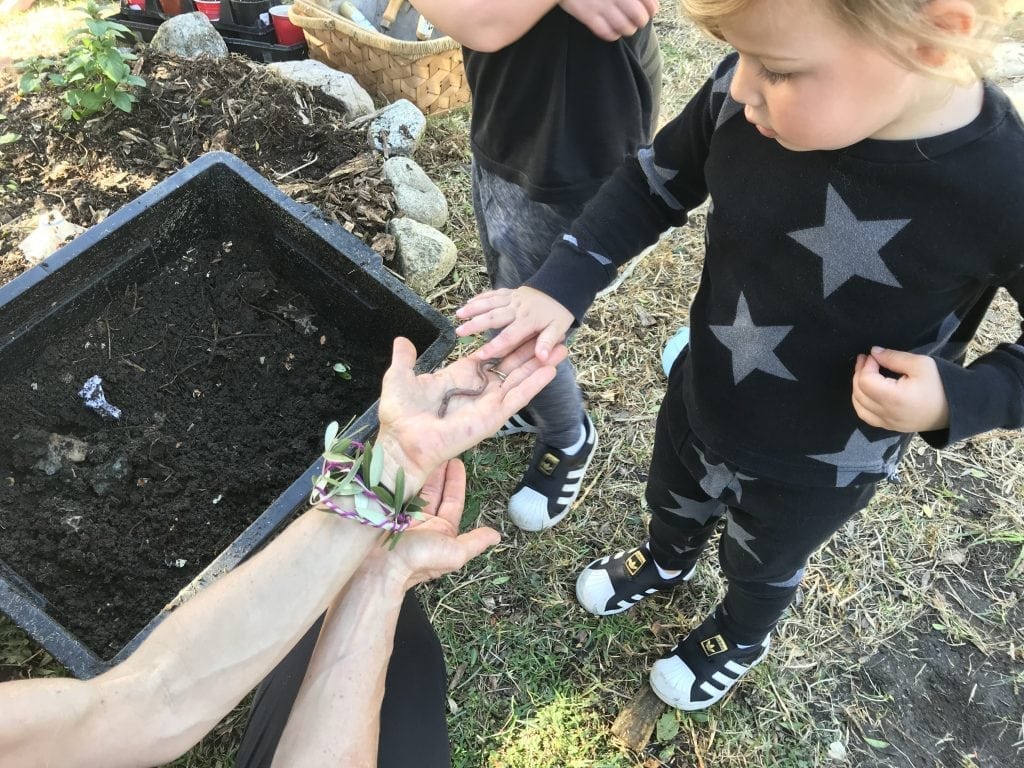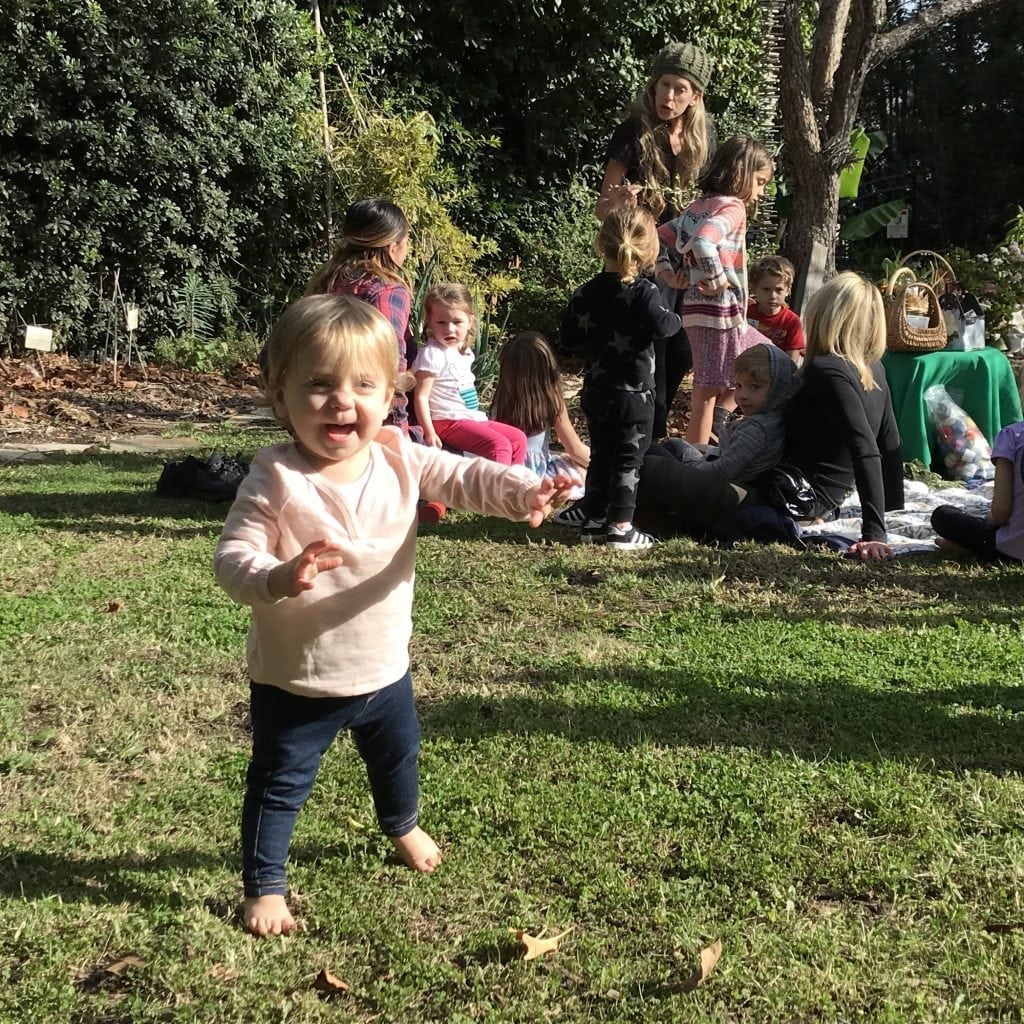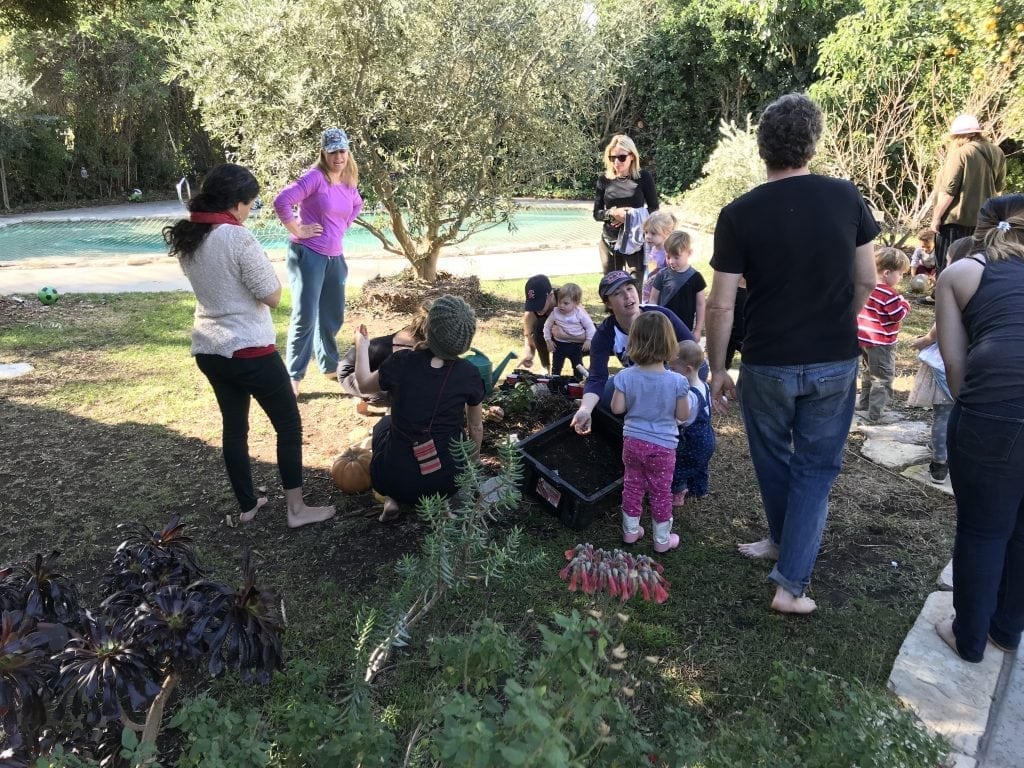
PHOTO COURTESY NETIYA
One recent morning, my 7-year-old daughter got dressed for school and announced that she was wearing all purple. “Purple shirt, purple pants, purple boots, purple socks, even purple underwear!” she proclaimed proudly.
“That’s awesome, Ave!” I said. “Nicely done!”
Then she said something that broke my heart a little: “Do you think anyone will make fun of me for wearing all purple?”
Oh man, I thought. It’s happening. My self-confident, expressive, free-spirited little girl is starting to worry about being judged by other people.
It truly is a beautiful thing, that period before your child learns to be self-conscious, to worry about what other kids think. At nearly 11, my son is still happy to wear torn clothes and a corny propeller hat to school. Meanwhile, my considerably younger daughter is experiencing anxiety over the color purple.
Whether it’s cool clothes, designer sneakers, smartphones or trendy haircuts and colors, status symbols have crept their way into our elementary schools, allowing materialistic values to take hold at a younger age than ever before. It’s discouraging but not necessarily surprising. We live in a particularly materialistic city. While Los Angeles encompasses all socio-economic levels and demographics, there’s no question that the entertainment industry looms large through billboards, movie premieres and actual celebrity sightings. Then, of course, there’s peer pressure, that unavoidable beast that sends dread creeping into every parent’s heart.
To counteract these materialistic influences, your best bet is to reinforce your family’s core values, cultivate gratitude and generosity and tap into the power of Mother Earth.
It Starts with You
We should focus on doing everything we can to instill strong core values in our children from a young age. This starts with self-awareness. As parents, we may be unconsciously modeling attitudes and behaviors that we don’t want our kids to replicate. For example, if you – like so many of us – have developed a dependency on your smartphone and the opportunity to make sure you aren’t missing texts, emails or social media notifications, your kids are going to notice. And they’re going to assume a smartphone is indispensable.

PHOTO COURTESY NETIYA
And even before our kids are old enough to have their own Instagram, SnapChat or Twitter accounts, we often showcase their accomplishments, adventures, humorous moments and overall cuteness through our own social media channels. “In too many cases, kids are now an extension, or reflection, of Mommy and Daddy,” says Beverly Hills-based psychotherapist Fran Walfish, Psy.D. “When your child shines or struggles, it should not be a direct reflection on you. These actions of objectifying your child are the seeds that plant value measured in external opinions and how we are viewed by others.”
Our offline behavior – including seemingly innocuous actions such as complimenting friends on their clothes, shoes or appearance, or marveling at an expensive kitchen remodel or shiny new furnishings – can also make an impression. Most adults recognize, appreciate and desire nice things. These values are deeply ingrained in us through the media, our surroundings, our peers and maybe even our own parents. But it’s never too late to reevaluate our priorities and reassess what drives us, what we’re seeking and whether we’re ultimately fulfilled.
Self-Esteem and Generosity
Walfish, who specializes in family and relationships and is author of “The Self-Aware Parent,” stresses that helping your children develop strong self-esteem is one of the greatest tools for counteracting materialism. She suggests talking with them about where self-esteem comes from. “It doesn’t come from the money or things we have, nor does it come from showing off about our possessions,” she says. “Self-esteem is rooted in the way we feel about ourselves. The best way to feel good about oneself is by the way we treat other people – with kindness and generosity. When we give of ourselves we are the beneficiaries.”
How do you know if your child is leaning toward materialism? Walfish says it’s a possibility if your child:
- demands the latest toys and electronic gadgets;
- refuses to accept gifts of clothing, shoes or toys unless they carry the brand or designer’s label;
- has a meltdown when you say no to buying what he or she demands;
- asks your friends whether their jewels are “real;” or
- seems more interested in things than in people.
She also offers a concrete idea for counteracting those messages and establishing self-esteem through generosity. “Start by knowing each one of your individual children,” Walfish says. “Identify what brings each one of your kids personal pleasure. Maybe one loves to cook while another enjoys painting. Join them in baking cookies and painting colorful pictures to take to the local homeless shelter. Their faces will light up, and at the same time your kids will see the recipients’ faces light up in joy. The mirroring effect seals the experience in glue. The feel-good emotion can become addictive, where your child wants to give, give, give.”

PHOTO COURTESY NETIYA
Grounded Values and Earth-Based Connection
Devorah Brous is executive director of the food-justice and multifaith garden education organization Netiya and the mother of two young children. Netiya teaches families and community leaders throughout L.A. County about stewardship, resiliency, self-sufficiency and sustainable values.
Brous’ passion for bringing people together to put their hands in the soil is compelling and, as you might imagine of someone so deeply connected to the earth, she just might be one of the least materialistic people in L.A.
She works to keep her kids on the same path. “I don’t actively try to counteract materialism for fear that’ll result in a serious backlash,” says Brous. “Instead, I focus on complementing two things: limited screen time with shared garden time – unearthing worms, watching spiders weave and replicating chicken dances. My hope is that my kids connect deeply to life force whenever and however possible. Maybe it’s through my utter fascination with compost, or maybe for the kids it’s through climbing a tree or harvesting some food for dinner.”
When asked how to instill a literal sense of groundedness in ourselves and our children, Brous stresses the idea of always giving back more than we take. “Treading lightly is nothing short of vital for the future,” she says. “Ultimately, pairing any adventure with gratitude makes it magical.”
Families can experience this magic firsthand through Netiya’s Seedlings Sprout! Parent and Me classes, funded by a Jewish Federation of Greater L.A. grant. Each class starts with a nature hunt in the garden, then moves into an activity focused on the day’s theme, such as worm composting, aquaponics or insects in the garden. Children and parents harvest from the garden, feed the chickens, turn compost and feast on garden snacks in the shade before ending with a meditation.
Melissa Kahn Wilkenfeld says her family enjoys the program because it reinforces values such as respect for nature, hard work, patience, curiosity and trying new things. “It’s a joyful way to spend the morning or afternoon,” she says.

PHOTO COURTESY NETIYA
“Many families we’ve referred to the program may or may not be inclined to get their hands dirty at home, and so very much appreciate the opportunity to hold a chicken, plant seedlings, pull up potatoes or study a worm under a magnifying glass. All it takes is showing up with their child. The relaxed atmosphere is rare for a children’s class in L.A.”
For tweens and teens, Netiya offers the Growing Grit Fellowship. This immersive and experiential three-month program teaches empowerment and food-justice community activism through the framework of urban farming. By the end of the program, students will have carried out an impactful food project – such as a food waste audit at their school or a community garden work day – from seed to fruition. You can learn more about these offerings at www.netiya.org.
As for my daughter, she happily went off to school that day in all her purple glory. The next day, she wore stickers (aka earrings) on her earlobes all day, and the next she rocked her brother’s oversize snow boots and toy night vision goggles. I guess I have some time before she starts worrying too much about what other people think, after all.
Erin Mahoney Harris is a Santa Monica-based urban farmer, author, freelance writer and mother of two.



























